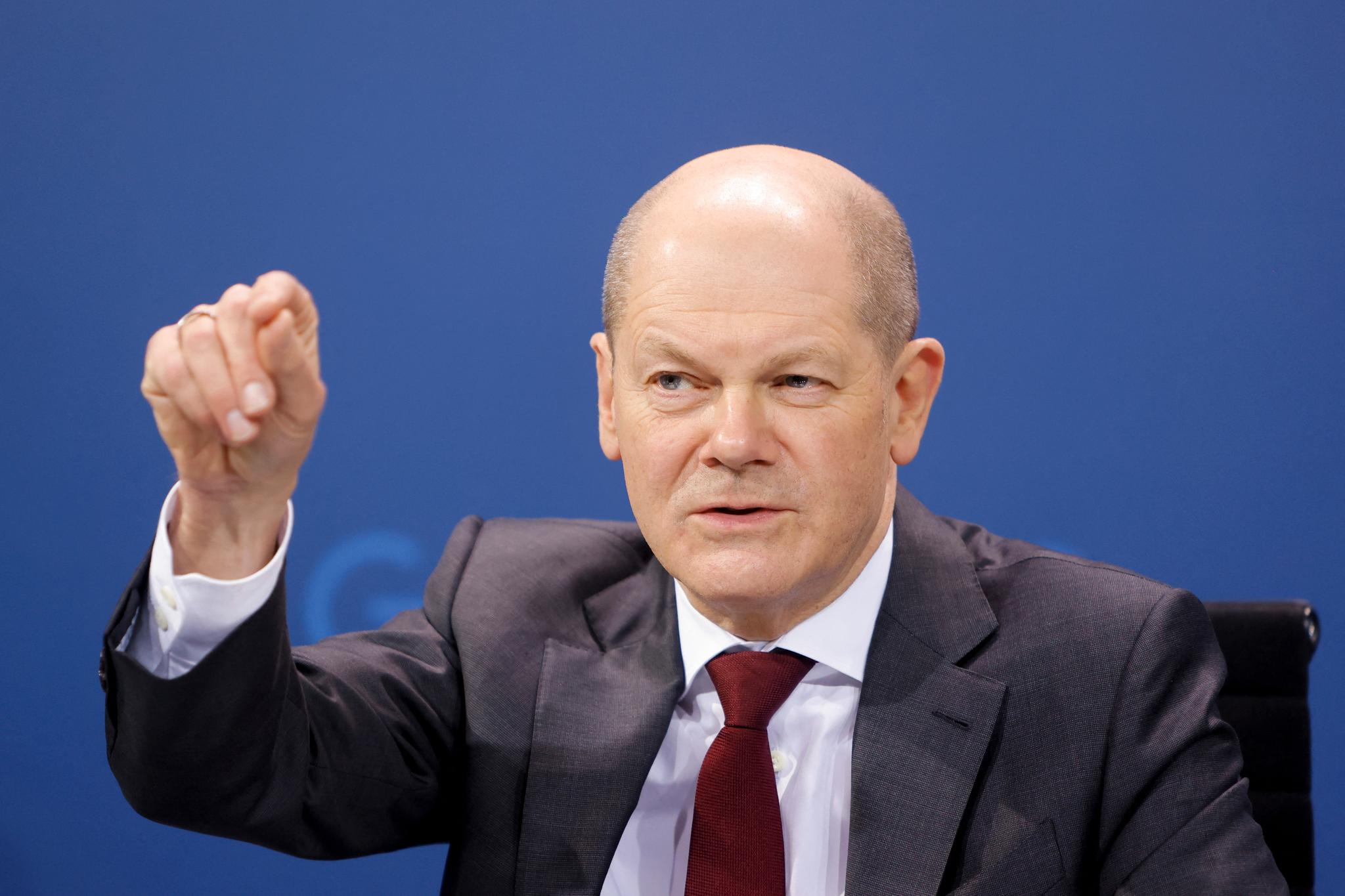Western leaders on Monday announced further sanctions against Russia. So far, no decision has been made to stop the import of Russian oil and gas.
—
A trade boycott of Russian oil will have catastrophic consequences for the global oil market. This is what Russia’s Deputy Prime Minister Alexander Novak says.
– The rise in prices will be unpredictable – more than 300 dollars a barrel, if not more, Novak told Russian news agencies on Monday.
A little later, he told Russian state television that Russia was threatening to halt gas supplies through the Nord Stream 1 pipeline. The gas pipeline runs along the bottom of the Baltic Sea from Russia to Germany.
Due to the Ukraine invasion, the government of Germany has stopped the process of approve the Nord Stream 2 pipeline. It will transport more Russian gas to Europe.
Ukraine calls for boycott
Russia has already imposed very severe economic sanctions following the invasion of Ukraine. The leaders of the United States, France, Germany and the United Kingdom announced further measures on Monday.
Ukrainian President Volodymyr Zelenskyj has called on allies to boycott Russia’s profitable oil and gas industry, among other things. So far no decisions have been made about this.
No position taken on oil boycott
US President Joe Biden had a new digital meeting with the three European leaders on Monday. Biden, French President Emmanuel Macron, German Prime Minister Olaf Scholz and British Prime Minister Boris Johnson once again called on Russia to withdraw from Ukraine.
They reaffirmed their determination to “continue to increase the cost to Russia of its unprovoked and unjustified invasion of Ukraine,” the White House said.
But the press secretary in The White House states that “no decision” has yet been made on trade boycott of Russian oil.
The Germans have put their foot down
So far, however, there has been clear talk from Germany not to support a trade boycott. The German Chancellor Olaf Scholz stated in a press release on Monday that it is out of the question to stop gas imports from Russia. He stressed that Europe had deliberately refrained from including energy supplies from Russia in the sanctions. The reason is that Europe’s access to energy for heat, transport and electricity cannot currently be secured in any other way.
He believed that imports are of “significant importance” for the daily life of the inhabitants and for services of general interest.
– The federal government has been working with its partners inside and outside the EU for several months to develop alternatives to Russian energy. But it does not happen overnight, he pointed out.
Germany receives an estimated 55 percent of the gas and 42 percent of the oil and coal from the Russians.
Boris Johnson is considering increased production
The British Prime Minister Boris Johnson indicated on Monday that British oil and gas production should be increased to reduce dependence on the Russians. It writes the Guardian.
The Prime Minister said that the UK is looking at the possibility of increasing production in the North Sea. But critics say it will take decades to increase production significantly.
Johnsen was visited on Monday by the Canadian Prime Minister, Justin Trudeau, and the Dutch, Mark Rutte. Afterwards, he said that a ban on Russian fossil energy was “on the table” to the highest degree. But he also agreed with Rutte that it could not happen immediately, but had to be done step by step and that each country had to do it at its own pace.
Discussion led to a jump in price
The discussion about a possible trade boycott led to a sharp jump in oil prices on Monday. North Sea oil at one point cost $ 127 a barrel. North Sea oil at one point cost $ 139 a barrel. In the evening Norwegian time, the price was 124 dollars.
European gas prices plummeted over 50 percent to over 300 euros per megawatt hour, according to figures from Infront quoted by E24.This is the highest level ever.
The rising prices lead to increased oil and gas revenues for Norway. Nevertheless, the Oslo Stock Exchange also fell on Monday, as did the major European stock exchanges.
–


